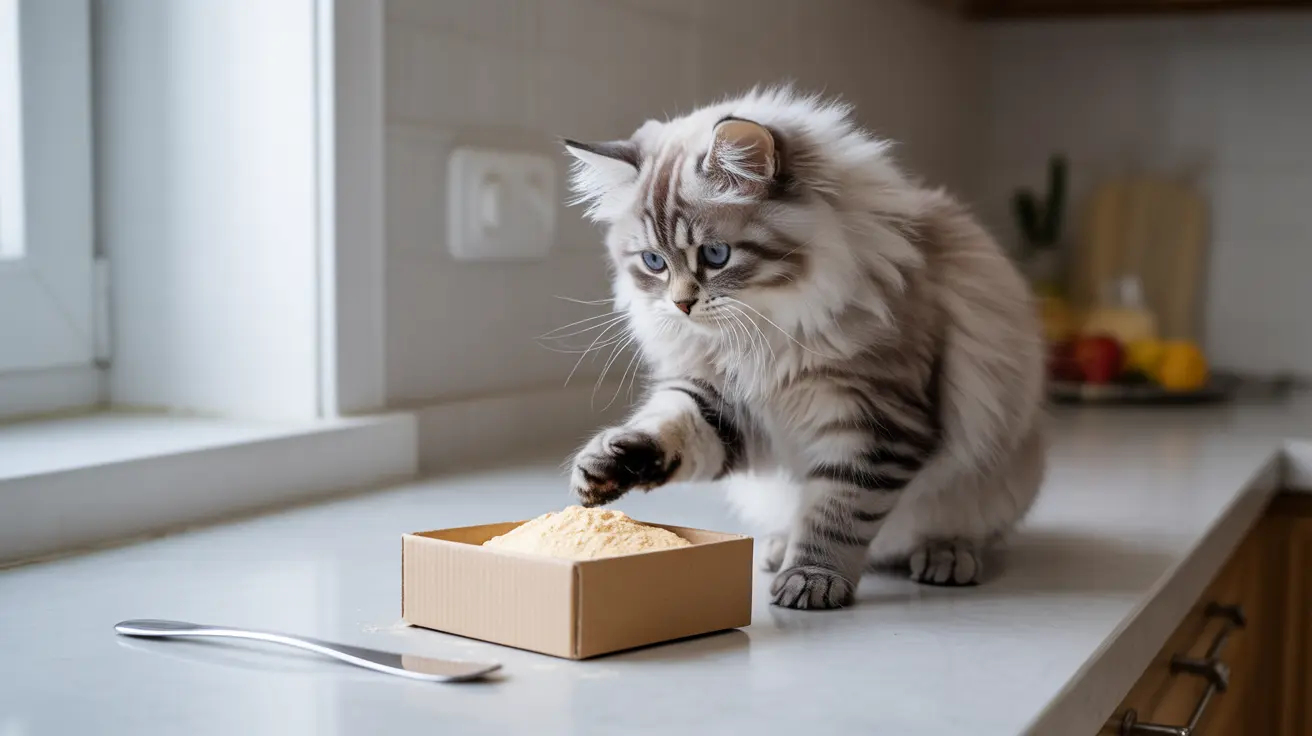If you're battling a flea infestation on your cat, you may have heard that cornstarch could be an effective natural solution. However, before you reach for that box in your pantry, it's important to understand what scientific evidence tells us about cornstarch's effectiveness against fleas.
While cornstarch is generally safe and non-toxic, veterinary experts and research consistently show that it does not kill fleas at any life stage. Let's examine why this common household ingredient falls short as a flea treatment and explore what actually works for protecting your feline friend.
Understanding the Cornstarch Myth
The belief that cornstarch kills fleas likely stems from its powdery texture and the idea that it might suffocate these parasites. However, scientific studies have found no evidence supporting cornstarch's ability to kill or control fleas on cats or in the environment.
Despite being safe for external use, cornstarch simply doesn't possess any properties that would harm or eliminate fleas. This means relying on it as a treatment could actually worsen your pet's flea problem by delaying effective intervention.
Safety Considerations When Using Cornstarch on Cats
While cornstarch isn't toxic to cats, applying any powder to your pet's fur comes with potential risks:
- Respiratory irritation if inhaled
- Digestive upset if ingested during grooming
- False sense of security in flea control
- Possible skin irritation in sensitive cats
Why Traditional Flea Treatments Work Better
Veterinary-approved flea treatments are specifically designed to target fleas through various mechanisms:
- They affect multiple stages of the flea lifecycle
- Provide consistent, long-lasting protection
- Are tested for safety and efficacy
- Come in various forms (topical, oral, or collar) to suit different needs
Effective Flea Control Strategies
Instead of relying on cornstarch, implement these proven flea control methods:
- Use veterinarian-recommended flea preventatives
- Vacuum frequently, especially in carpeted areas
- Wash pet bedding in hot water regularly
- Consider professional pest control for severe infestations
- Treat all pets in the household simultaneously
Frequently Asked Questions
Does cornstarch actually kill fleas on cats or in the home?
No, cornstarch does not kill fleas. There is no scientific evidence supporting its effectiveness as a flea treatment on cats or in the environment.
Is it safe to use cornstarch or cornstarch-based baby powder on my cat for flea control?
While cornstarch is generally non-toxic, it's not recommended for flea control. It can cause respiratory irritation if inhaled and digestive issues if ingested during grooming.
What are the limitations of using cornstarch as a home remedy for treating fleas?
Cornstarch has no proven flea-killing properties and cannot address any stage of the flea lifecycle. Using it may delay effective treatment and allow infestations to worsen.
What veterinary-approved flea treatments work better than cornstarch?
Veterinary-approved options include topical treatments (like fipronil or selamectin), oral medications, and flea collars. These products are proven effective and safe when used as directed.
Can cornstarch help reduce fleas by trapping them during vacuuming or cleaning?
While cornstarch might help with general cleaning, there's no evidence it effectively traps or kills fleas during vacuuming. Regular vacuuming alone (without cornstarch) is more beneficial for flea control.
Conclusion
While the appeal of natural remedies is understandable, cornstarch is not an effective solution for flea control. Instead of experimenting with unproven treatments, consult your veterinarian for safe, scientifically-proven flea control options that will actually protect your cat and home from these persistent parasites.






